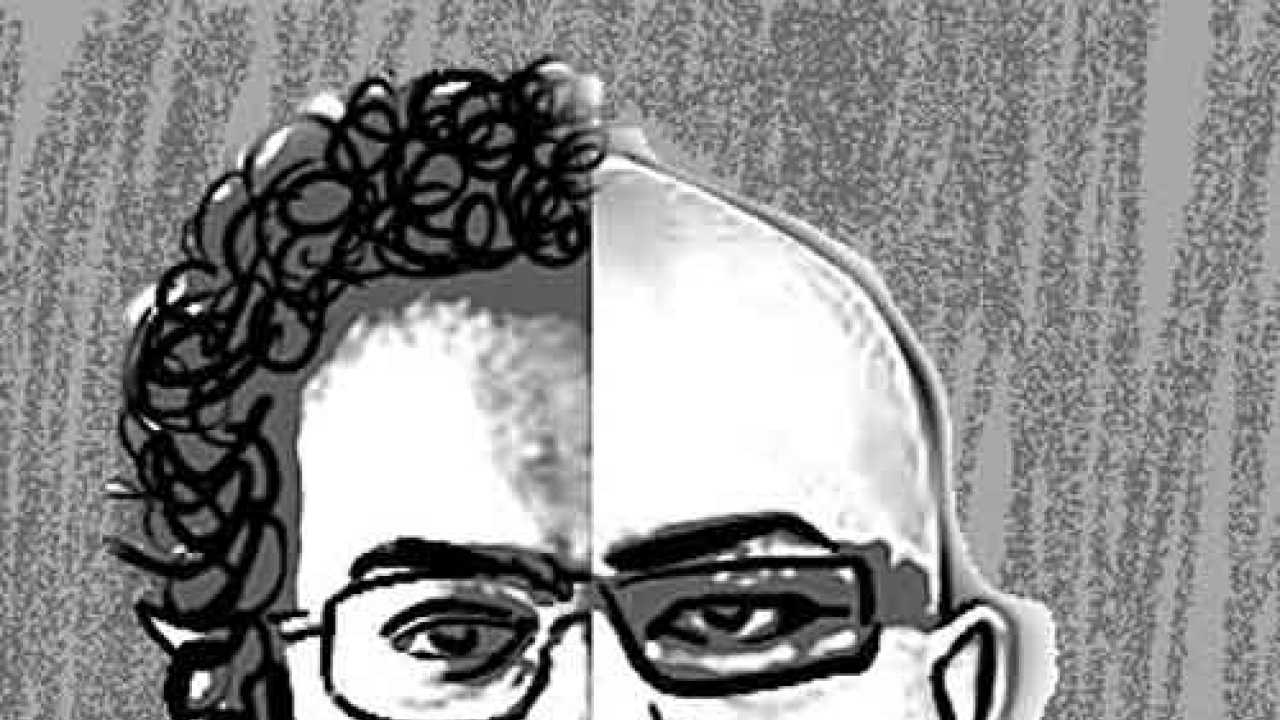
“Hello!” It took me a minute to identify the speaker in salwar kameez, a dupatta around the head. I also remembered how Rituparno Ghosh (1963-2013) had once declared that he was neither man nor woman, so this was not just cross dressing, but an avowal of what he was. But did he sound less happy? Why?
Years ago, he had been all blithe bonhomie when I walked into the Kolkata studio where he was shooting Titli, with Aparna Sen playing screen mother to real life daughter Konkana. The set revealed a tasteful eye for detail — pictures of butterflies on the wall, elegantly etched leather file on the desk, cushions, modas...The greeting cards were from the film-maker’s personal mail...
Ghosh always displayed this fastidious taste in sets and costumes — especially the handpicked handloom sarees. But the clutter of period pieces in Chokher Bali could befuddle and distract. When I complained about his Raincoat’s unrelenting smoothness and too-well-thought-out music, he asked, “Too pat? My biggest weakness... Maybe I want to titillate with visuals, colours, characters, dialogues, melodies... flirt with my audience...”
Impish giggle gave way to woebegone sigh as he pondered, “When I see a Rat Trap or Under the Olive Tree, I wonder, well, what’s the point? Then I think okay, I don’t have to be an Adoor or a Kiarostami.’’ Disarmed, I assured him that greatness was just round the corner. “Ultimately, it’s a question of whether you are in that league or not,’’ he countered.
“I am a craftsman, yet to become an artiste.’’
But the artiste was within him from the early gem Unishe April. It was his zest for beauty which made him recognise how ugliness, insensitivity and a brutality-marred life diminished the spirit.
When a multi-award winner dies mid-career, obituaries tend to eulogise, overlook criticism, “Too many films too fast, talent frittered away in flawed and forgettable work.” Wasn’t his The Last Lear with Amitabh Bachchan, an overblown embarrassment?
But Ghosh created an oeuvre with a stylistic identity of his own. Subjects changed, Bollywood stars replaced locals, but his fellow feeling for the vulnerable and the marginalised remained constant.
His love of literature was evident in narrativising method, shaping character, layering details. “My admiration for Tagore and Ray is not the only reason. Don’t you know that the Bengali word boi means both book and film?” he would laugh.
For me, personally, Dahan (1997) stands out for its ruthless scrutiny of soul rot and social prejudice, uncovering shocking callousness in so-called “normal” people. Newlywed Romita is saved from goons by a young female stranger, not by her husband. I can still see the miasma of suspicion and mistrust, as husband accuses wife of inviting molestation, forcing her to deny the crime. Her saviour faces character assault. Ghosh didn’t have to shout to express outrage.
From his personal torment, Ghosh developed an acute grasp of what it means to be a woman in a patriarchal society. In his last films, he found both tenderness and trauma in dealing more overtly with sexuality. He battled with ailments physical and psychological — from diabetes to insomnia, faced the aftermath of abdominoplasty and breast implants, “life threatening surgeries,” his brother called them.
In his best work, Rituparno Ghosh proves that nuancing can pierce where slogans blunt.
With his art, he tried to puncture pretence, to bare the real. In the films where, as an actor, he wore saris and ornaments, was he using the camera to discover himself?
The author is a playwright, theatre director, musician, and journalist writing on the performing arts, cinema and literature.